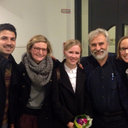Dramatic reduction of meningococcal meningitis among military recruits in Italy after introduction of specific vaccination.
Sleutelwoorden
Abstract
Meningococcal meningitis is still a serious infectious disease with a mortality rate that can be as high as 10% even in developed countries. Military recruits are generally a high-risk group for meningococcal disease, with a reported incidence of four to ten times greater than that of the general population. In Italy the results of the National Meningitis Surveillance Programme showed a high attack rate of the disease among recruits in 1985 as well as in 1986, with 92 and 95% of the cases, respectively, caused by serogroup C and thus preventable. These findings led to the authorities' decision to make vaccination against meningococcal disease mandatory for recruits starting from January 1987. After almost 5 years from the introduction of meningococcal vaccination, we here sum up the epidemiological and immunological effects of the vaccination. From the epidemiological point of view we have observed a dramatic reduction of the prevalence of the disease. In 1987, the year in which we had 150,000 unvaccinated and 150,000 vaccinated recruits, the protective efficacy was 91.2%. From the immunological point of view, vaccination is highly effective, as seroconversion against polysaccharide (PS) A and C is 84 and 91%, respectively. The spectrotypic analysis of the sera before and after vaccination shows that the type of response is mainly oligoclonal, like the majority of the responses to PSs, and the antibodies induced by a sole PS are not qualitatively different from the antibodies induced by natural immunization. In addition, the efficacy is not modified by environmental factors like hypoxia, as demonstrated during permanence at 16,174 feet for 20 days.(ABSTRACT TRUNCATED AT 250 WORDS)


